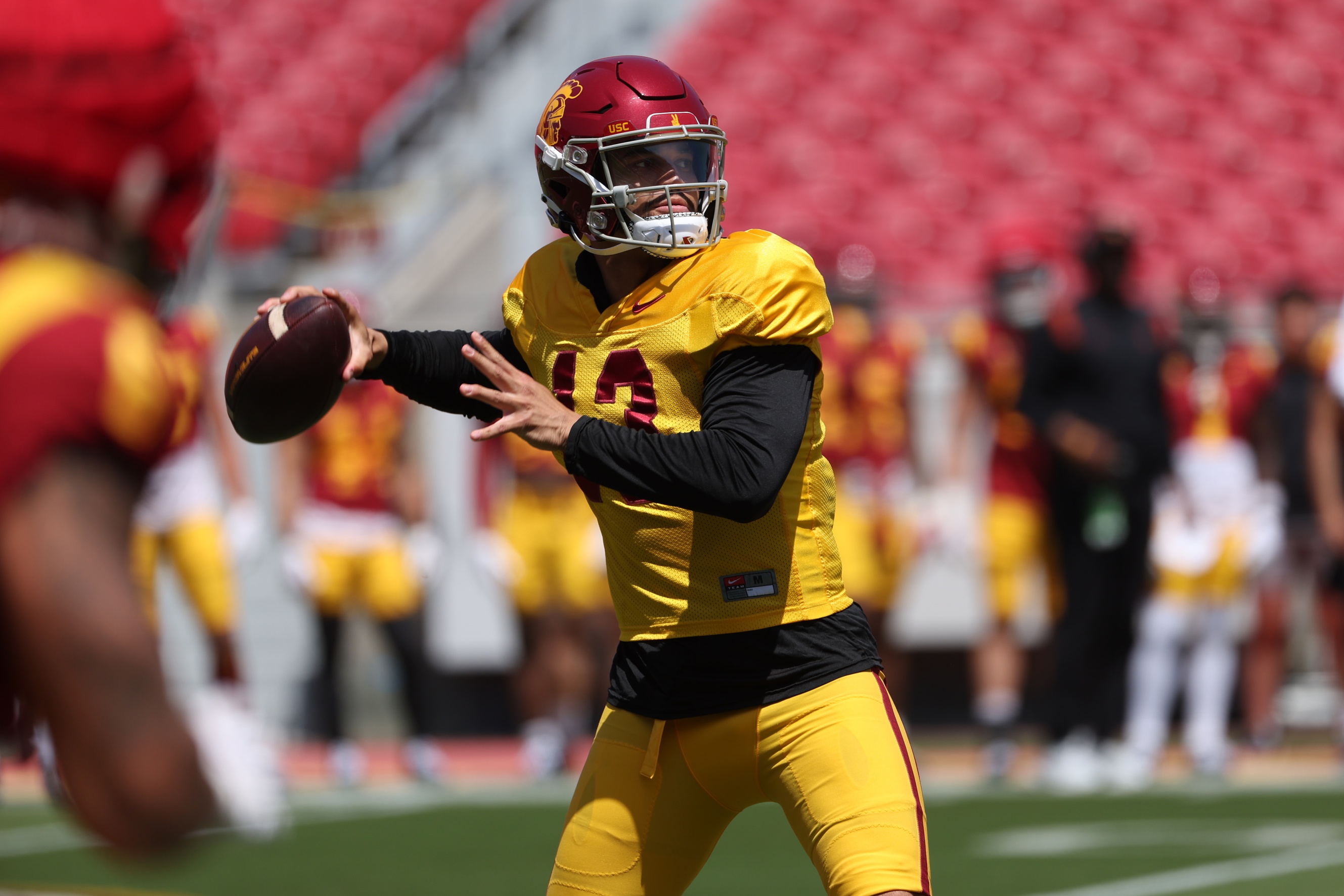How College Football Rule Changes Could Affect Bettors

Every offseason, sports leagues discuss rule changes for a variety of reasons. In Major League Baseball this year, the pitch clock and base enlargement were introduced with the hopes of speeding the game up and increasing scoring by encouraging more stolen base attempts.
College football recently adopted a few rule changes with a view to the future. With the College Football Playoff expanding to 12 teams in the 2024 season, more games will be played. With that in mind, the NCAA rules committee instituted a few changes in order to shorten the game, under the guise of "player safety". It will be interesting to see if these new rules alter the scoring and facilitate a need to adjust the way we handicap totals.
Doc’s Sports offers college football expert picks for every game on our college football predictions page.
Rule Change #1: Ban consecutive timeouts to prevent "icing" the kicker. One of the suggested changes aims to prohibit teams from taking back-to-back timeouts in order to disrupt the focus of the kicker, especially toward the end of halves or games. This adjustment is not expected to significantly alter the dynamics of the game, as there is no substantial evidence indicating that "icing" the kicker actually increases the chances of a missed kick. By eliminating this tactic, there will be one less interruption in the game's flow, sparing viewers from watching kickers nervously pacing or practicing leg swings before crucial kicks.
Rule Change #2: Elimination of untimed downs at the end of the first and third quarters. The second rule change, although hardly noticeable to fans, involves removing the extra play at the end of the first and third quarters when a defensive penalty occurs with no time remaining on the clock. This alteration could save approximately 30 seconds of game time.
Rule Change #3: Clock runs after first downs, except inside two minutes in a half. In college football, the clock stops after every first down until the ball is spotted, players are in position, and ready for the next play. This leads to more plays per game compared to the NFL, where the clock continues to run unless there is an incomplete pass, the ball goes out of bounds, or the runner goes out of bounds. The proposed change suggests implementing a running clock after first downs, similar to the NFL, with the exception of the final two minutes of each half. By adopting this rule, college football games would likely feature fewer plays, resulting in reduced scoring and limited opportunities for comebacks. It's worth noting that clock rules generally favor offenses over defenses due to the impact of higher snap counts and the fatigue levels of defensive players.
Thankfully, the rules committee dismissed the most extreme suggestion of having the clock run on an incomplete pass. This would have had the effect of making games more like video games. While it would have most definitely reduced the number of plays, somewhere in the range of a 30%-40% reduction, it would have drastically altered the game and rendered the 2-minute drill almost obsolete.
There seems to be mixed reactions to the impact on the game -- and specifically handicapping games -- because of these new rule changes. One camp believes that not stopping the clock for first downs will absolutely lead to a decrease in scoring. Their rationale is that teams will have less time to prepare their late-game offensive strategies and execute those plays. Decreasing the clock stoppages would limit the number of chances that teams have to extend their possessions, which results in fewer scoring drives. An ancillary result of the inability to stop the clock could be teams facing more pressure to practice proper clock management, which would lead to a decrease in the effectiveness of their play execution. This could ultimately lead to more mistakes, turnover, and in the end, result in a scoring decline.
The other side of the debate believes that these fears of a drastic decrease in scoring are unfounded. Obviously, clock stoppages for first downs provide more time to prepare and execute strategy, but that doesn't guarantee scoring success. In fact, the continuous flow of the game without clock stoppages could promote a faster pace and benefit hurry-up offenses a great deal. In addition, in order to compensate for the decreased time towards the end of a game, coaches may actually start to run their hurry-up offenses with eight or nine minutes to go, rather than waiting for the final two or three minutes.
Just like most things in this world, these changes will benefit some teams while hindering others. One thing is certain, and that's that this will be a very closely watched trend that may provide early value as oddsmakers, as well as the teams and fans alike, become accustomed to the new rules. Hopefully, they'll be as successful as the MLB rule changes have been. Baseball games are almost half an hour shorter, and successful stolen base attempts are at an all-time high.
Get college football picks on every single game, or if you want our very best bet premium picks by the experts, sign up for your free $60 account with a guarantee.
Most Recent College Football Handicapping
- 2025 College Football National Championship Futures Odds with Expert Betting Predictions
- College Football Playoff Semifinals Betting Props and Predictions
- College Football Playoff Analytical Report
- College Football Playoff Prop Bet Predictions for First Round
- Bowl Game Schedule - College Football Bowl Schedules for 2024-25
- 2024-25 Heisman Trophy Predictions with Betting Odds
- College Football Playoff: Odds and Best Bets to Make 12-Team Field
- College Football Predictions: Week 10 Opening Line Report and Picks
- College Football Predictions: Week 9 Opening Line Report and Picks
- College Football Predictions: Week 8 Opening Line Report and Picks
